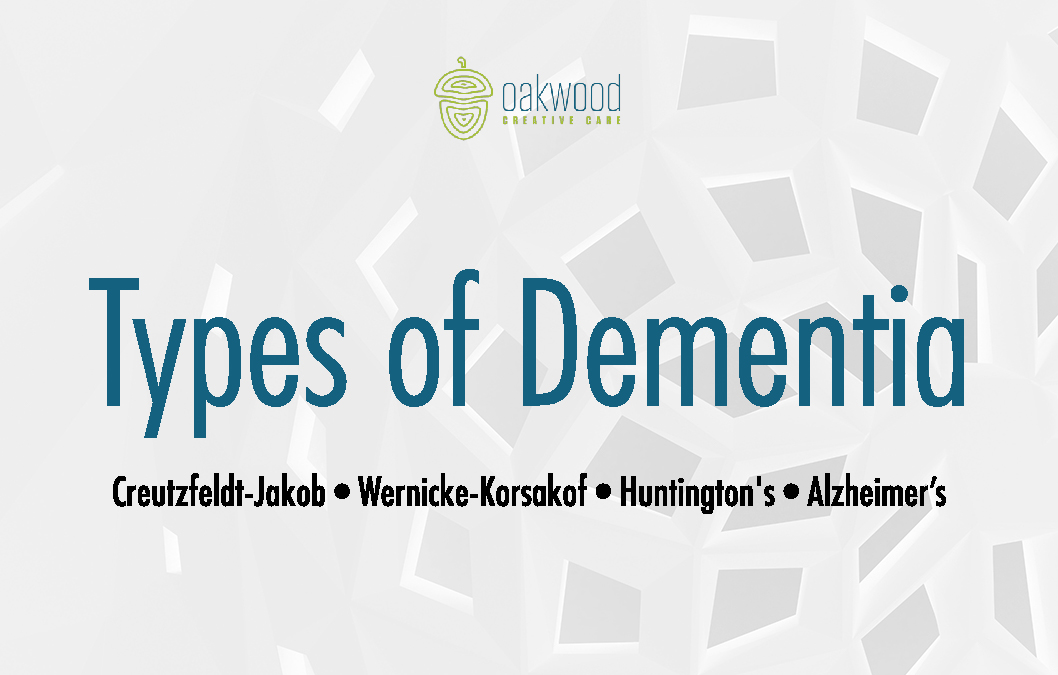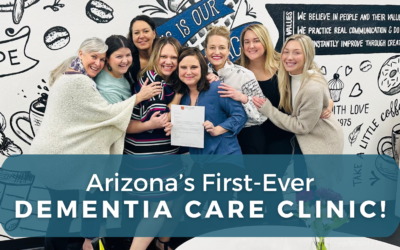{ Written by Rosemary, RN and host of Real Talk with Nurse Rosemary }
Types of Dementia Series, Part Three
Today, I’m continuing my series on the different types of dementia. If you haven’t read by other posts on this topic yet, this is in addition to my other articles on dementia types here and here.
Creutzfeldt-Jakob Disease (CJD)
CJD is a very rare (in fact, the rarest form) of dementia. Only 1 in 1 million people are diagnosed with this dementia each year. This disease progresses quickly, and people usually die within a year after diagnosis. People with CJD will typically experience confusion and memory loss, but it also affects the body —causing twitching and muscle stiffness. I have not seen this type of dementia in my 35 years of nursing.
Wernicke-Korsakoff Syndrome
Wernicke-Korsakoff syndrome is due to a lack of Vitamin B-1. Although this not a “true” dementia, it shares many of the same symptoms. In this syndrome, sometimes people will make up information to fill the gaps in their memories, without even realizing it they are doing it! This disease can be a result of chronic infections and malnutrition, but it’s usually caused by vitamin deficiency due to alcoholism. People with Wernicke-Korsakoff Syndrome have problems with memory, learning new skills, and processing information.
Huntington’s Disease
Huntington’s disease will also cause dementia, and this is a genetic condition. I’ve seen Huntington’s in about 6 or 7 people. This is a very sad disease, that you’ve likely seen a time or two, as well. Usually, you’ll see impaired movements (jerking, difficulty walking, trouble swallowing). Additionally, a person with Huntington’s disease will often have difficulty focusing on tasks, as well as impulse control issues.
There is a rarer, juvenile form of Huntington’s disease, with symptoms beginning in childhood or adolescence. Adults usually begin to see symptoms in their 30’s or 40’s. This causes a premature breakdown of the brain’s nerve cells which lead to the above symptoms.
Alzheimer’s Disease
Well known to most of us, Alzheimer’s disease is the most common type of dementia, comprising about about 60% to 80% of all dementia cases. I want you to aware of the following, as I feel it is so important: I see a lot of depression in Alzheimer’s members, however, depression is not part of the disorder. It’s a separate disorder that needs to be treated!
On the other hand, some depressed older adults are misdiagnosed as having Alzheimer’s disease. Depression is a very real condition and we all need to be sure that we listen and observe for its signs. If depression was treated earlier in Alzheimer’s disease, we’d probably not see as many behavior problems so early. There have been several occasions when I’ve spoken with a family of someone with Alzheimer’s Disease and suggested they talk to their loved one’s doctor and about if medication for depression is an option. If you think your loved one may be depressed, please feel free to call me to talk about it.
In my next blog…
I believe in my next blog, we’ll be able to bring my series about the different types of dementia to a close.
If you’d like for me to discuss a specific disease (dementia or otherwise) here, please let me know.
For your information, Oakwood has a weekly Support Group for caregivers every Tuesday at 2pm. Due to Covid19 we use Zoom. Feel free to call me and I will give you information to join (480-646-7394 Rosemary)




